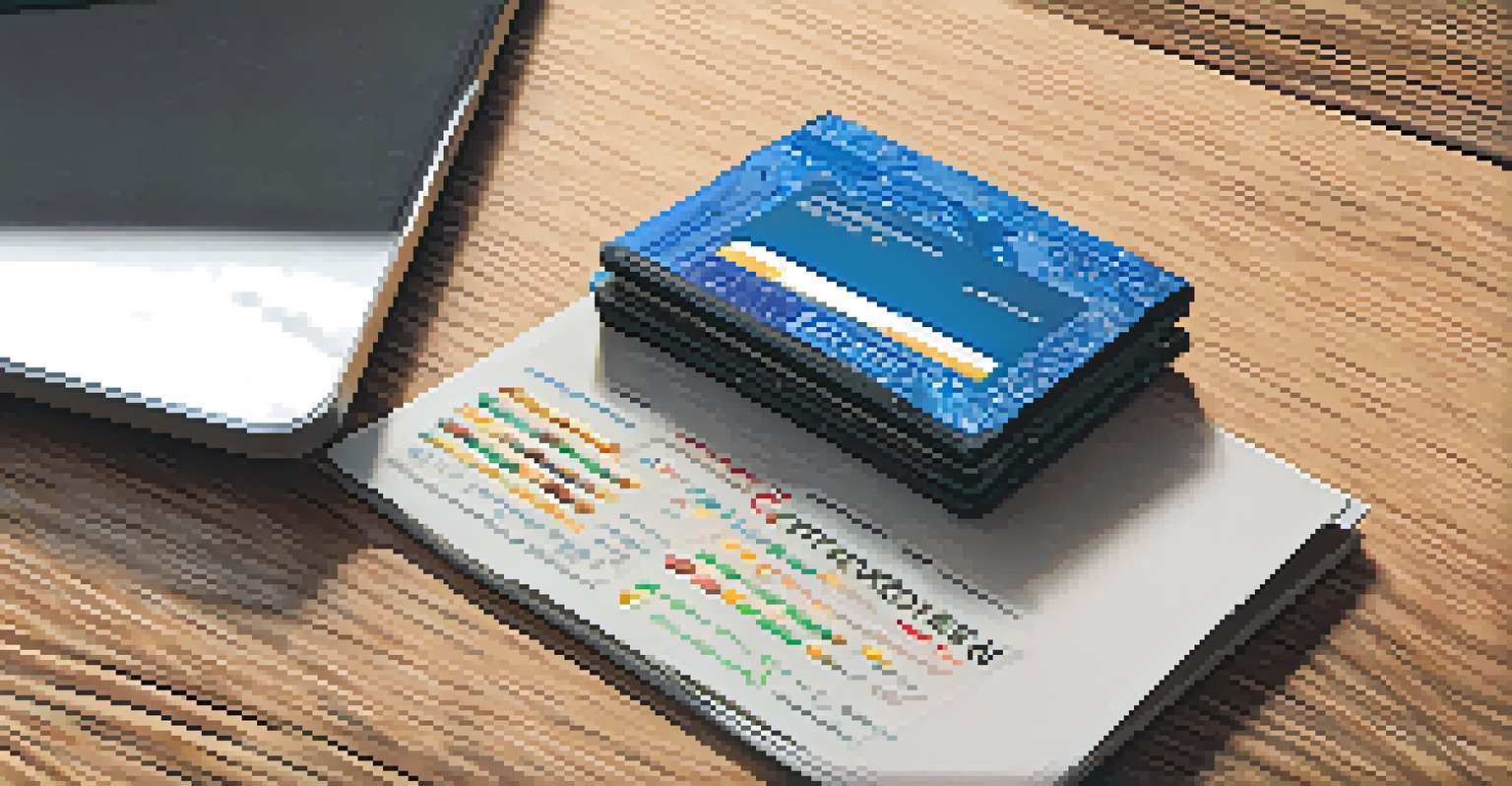Cryptocurrency Wallets: Accessing Finance for Everyone

What is a Cryptocurrency Wallet and How Does It Work?
A cryptocurrency wallet is a digital tool that allows users to store, send, and receive cryptocurrencies like Bitcoin and Ethereum. Unlike a traditional wallet, which holds physical cash, a cryptocurrency wallet stores your digital assets securely on the blockchain. This technology uses cryptographic keys to ensure that only you can access your funds, making it both safe and convenient.
Bitcoin is a technological tour de force.
You can think of a cryptocurrency wallet as a combination of a safe and a bank account. Just as you would keep your cash safe in a safe, you use a wallet to protect your digital currencies. The wallet keeps track of your balances and transactions, giving you a clear overview of your financial activity in the crypto world.
There are various types of wallets, including software, hardware, and paper wallets, each offering different levels of security and accessibility. Software wallets are user-friendly and accessible on devices like smartphones, while hardware wallets provide enhanced security by keeping your keys offline. Understanding these options is essential for anyone looking to dive into cryptocurrency.
Types of Cryptocurrency Wallets: Finding Your Fit
When it comes to cryptocurrency wallets, there are generally three main types: hot wallets, cold wallets, and paper wallets. Hot wallets are connected to the internet, making them convenient for everyday transactions, while cold wallets store your cryptocurrencies offline for maximum security. Paper wallets involve printing your keys on paper, which can be a secure way to store your assets if handled correctly.

Imagine hot wallets as your daily-use debit card, allowing quick access to your funds when you need them. In contrast, cold wallets are like a safety deposit box, accessed only when you want to store your wealth securely. Choosing the right type of wallet depends on how frequently you plan to use your cryptocurrency and your comfort level with security.
Understanding Cryptocurrency Wallets
Cryptocurrency wallets are digital tools that securely store, send, and receive cryptocurrencies using cryptographic keys.
Ultimately, the best wallet for you will depend on your unique needs and goals. If you're just starting out and plan to make regular transactions, a hot wallet might be ideal. However, if you're looking to hold your assets long-term, a cold wallet or paper wallet could provide the peace of mind you need.
Setting Up Your First Cryptocurrency Wallet
Setting up your first cryptocurrency wallet is an exciting step into the world of digital finance. To get started, you'll first need to choose the type of wallet that suits your needs best. Once you've made your choice, the setup process typically involves downloading an app or purchasing a hardware device and following the prompts to create your wallet.
The future of money is digital currency.
During the setup, you’ll generate a unique seed phrase, which acts as a backup for your wallet. Think of this seed phrase like a master key; if you lose access to your wallet, this phrase can help you regain control. Make sure to write it down and store it in a safe place, as losing it could mean losing access to your funds.
After setting up your wallet, it’s time to add some cryptocurrency to it. This can be done by purchasing from an exchange or receiving funds from another wallet. As you navigate this process, remember to double-check wallet addresses to avoid sending your assets to the wrong destination—it's like ensuring you have the right address before mailing a letter.
The Importance of Security in Cryptocurrency Wallets
Security is a top concern when it comes to cryptocurrency wallets, as the digital nature of these assets makes them vulnerable to hacks and scams. To protect your funds, it's vital to use wallets with strong security features, such as two-factor authentication and encryption. These measures add layers of protection, ensuring that even if someone gains access to your device, they can't easily access your wallet.
Think of security as a fortress around your assets. The stronger the walls and defenses, the safer your treasure. Additionally, it's essential to stay informed about common scams and phishing attempts that target cryptocurrency users. Always verify the legitimacy of platforms and links before entering sensitive information.
Choosing the Right Wallet Type
Selecting between hot, cold, and paper wallets depends on your transaction frequency and security preferences.
Regularly updating your software and using hardware wallets for large amounts can also enhance your security. By adopting good security practices, you can enjoy the benefits of cryptocurrency without the constant worry of theft or loss.
Using Cryptocurrency Wallets for Everyday Transactions
One of the most exciting aspects of cryptocurrency wallets is their ability to facilitate everyday transactions. Many businesses are beginning to accept cryptocurrencies as a form of payment, allowing you to use your digital assets for everything from coffee to online shopping. This shift towards crypto adoption is making it easier for people to incorporate digital currencies into their daily lives.
Imagine being able to pay for your morning latte with Bitcoin instead of cash or a credit card. It's not just about convenience; using cryptocurrency can potentially offer lower transaction fees and faster processing times than traditional banking methods. Plus, having a cryptocurrency wallet allows you to send money to friends or family instantly, regardless of where they are in the world.
However, it's essential to keep track of your spending and understand the volatility of cryptocurrency prices. Just as you wouldn't spend more than you can afford with cash, applying the same principle to your digital assets will ensure you manage your finances responsibly.
The Future of Cryptocurrency Wallets and Finance
As cryptocurrencies continue to gain popularity, the future of cryptocurrency wallets looks bright. Innovations in wallet technology are emerging, making them even more user-friendly and secure. Features like integrated exchanges, multi-currency support, and improved interfaces are making it easier for everyone to participate in the crypto economy.
Picture a world where managing your finances could be as simple as tapping your phone. With advancements in wallet technology, users can expect even more seamless integration between their digital and traditional financial activities. This could open doors for new services and opportunities, like crypto-based loans and rewards programs.
Prioritizing Wallet Security
Implementing strong security measures, such as two-factor authentication, is crucial to protect your digital assets from potential threats.
Additionally, as more people gain access to cryptocurrency wallets, the financial landscape could shift toward greater inclusivity. By breaking down barriers to entry, cryptocurrency has the potential to empower individuals globally, providing financial services to those who may have been excluded from the traditional banking system.
Getting Started: Tips for New Cryptocurrency Wallet Users
If you're new to cryptocurrency wallets, starting your journey may feel overwhelming. However, there are a few key tips that can help you navigate this exciting space. First, take your time researching different wallet options and understand the features and security measures each one offers. This will empower you to make an informed choice.
Another important tip is to start small. Instead of diving in with a large investment, consider purchasing a small amount of cryptocurrency to get comfortable with the wallet interface and transaction processes. This approach allows you to learn without the pressure of significant financial risk.

Lastly, don’t hesitate to seek out resources and communities for support. Online forums, social media groups, and educational platforms can provide valuable insights and help you connect with fellow cryptocurrency enthusiasts. Remember, everyone was a beginner at some point, and learning together can make the experience much more enjoyable.